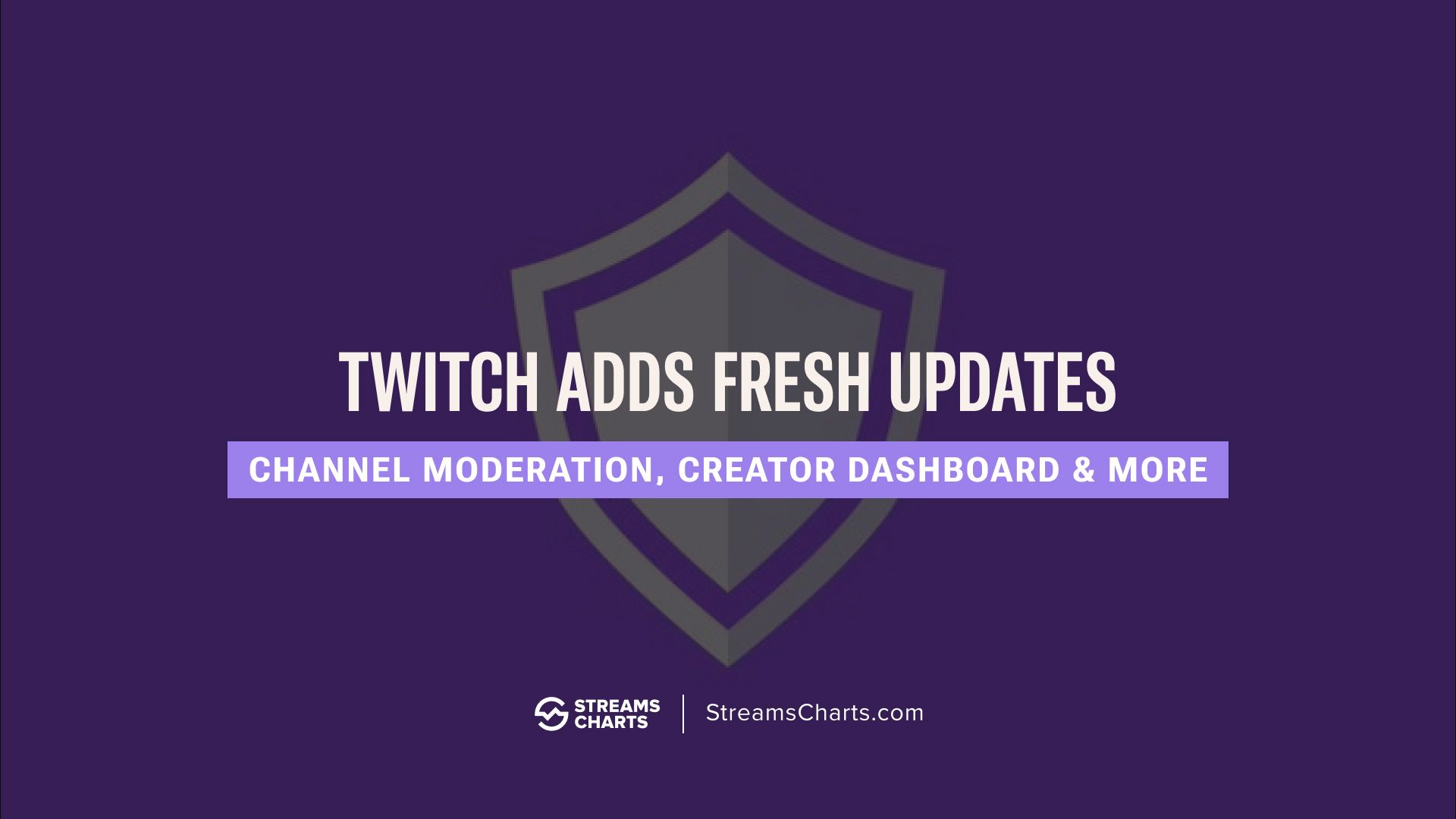Earlier this month, Twitch announced a few tweaks to its Creator Dashboard and Channel Moderation settings. These additions are aimed at streamlining the streamer-viewer experience by helping regulate who gets access to the chat feature during a livestream and providing fans with more options to show their support for a content creator.
Creator Dashboard additions
On the creator dashboard, the Amazon-owned company installed a new option in monetization settings. This is aimed at maximizing the experience for viewers who want to show their support for their favorite streamers by making donations, be it through bits or default rewards. The Subscriptions tool now has a Smart Cost option that will manage and adjust the default reward cost of a streamer based on their audience size and the redemption rate of these rewards.

Moreover, viewers and fans can now use power-ups, which are always enabled on a channel, to show their support for a creator. The categories under this tool are on-screen celebration, message effects, and gigantify and emote.
There's also the new "Stream Together" option under the Viewer Rewards section. This streaming software helps influencers accept collaborators over video. It works over audio but uses browser sources to enable collaborators to show up on a creator's livestream. The aim is to bring not only streamers but also communities together and help them pursue activities like hype trains on a larger scale.
Options like Shared Hype Trains and Introducing Shared Viewership are now available to streamers who are collaborating. Using these features, the communities of these creators can kick off a new Shared Hype Train in all the usual ways — using Bits, Subbing, and Gifting. The Shared Chat tool, meanwhile, unlocks Shared Viewership, which combines view counts, boosts discoverability, and brings two or more communities closer together.
Channel Moderation changes
Coming to channel moderation, streamers can now "quickly set up Chatter Permissions, AutoMod & Message Filtering, & Channel Protection by adjusting the sliders or advanced settings" on both desktop and mobile. These features are relevant to streamers and moderators, although they are slowly being rolled out, so not everyone would have gotten access immediately.
To access these moderation settings, users can navigate to their dashboard, click Settings, then select Moderation.
? We’re experimenting with a newly improved Moderation Settings page for some users!
— Twitch Support (@TwitchSupport) September 4, 2025
On both desktop & mobile quickly set up Chatter Permissions, AutoMod & Message Filtering, & Channel Protection by adjusting the sliders or advanced settings ?
?: https://t.co/SkLKpbD0NQ pic.twitter.com/Bo3isSNWKA
First up is the Chatter Permissions section, where content creators can manage settings that determine how and when their community participates in chat. They now have options like Email & Phone Verification, Followers-only & Subscribers-only mode, Non-Mod Chat Delay, Block Hyperlinks, and Chat Rules to help moderate and control who gets to enter the chat.
Second is AutoMod & Message Filtering, where creators can manage settings that automatically screen and hold potentially offensive or inappropriate messages from appearing in chat. They can use features like AutoMod, Blocked Terms, and Permitted Terms to regulate what specific terms, words, or phrases are used in chat. Readers can also learn more about both AutoMod and blocked/permitted terms here.
Last comes the Channel Protection segment, using which Twitch influencers can manage how others can engage with their channel to prevent trolls and harmful users. Follower verification, Harmful chatter detection and Stop banned users from viewing a stream are some settings that help control who can access a broadcast.
There is now also a list of users who have been banned from chatting in a channel. Hovering over a banned user’s username will display who banned the user and when. To unban someone, moderators or streamers can type /unban in the channel's chat or make use of the Unban Requests feature, which allows banned users to submit an unban request through the Chat column for channel owners and moderators to review and take action on, anonymously.

Moderators can visit Mod View to see unban requests for channels they moderate. Streamers may view unban requests for their own channel from the Stream Manager by searching "unban requests panel" in the Creator Dashboard, or manage their unban requests settings by visiting Settings > Moderation > Channel Protections.
Moderator Management
Lastly, moderators can use the Moderator Management tab to see the current list of moderators and add new ones. They can also manage the actions that moderators can take on a channel.
Enabling the moderator tools in chat option will allow moderators to view the chat and ban history of chatters in a channel, as well as leave and view comments left on users. This allows creators and their moderators to take into account any past history on a particular chatter and make informed decisions regarding time-outs, bans, or warnings.
Ultimately, streamers and their moderators require a little extra protection to ensure that a livestreams chat stays healthy and safe from unwanted interferences. These new changes from Twitch are a step toward helping them achieve these aims while also empowering viewers and fans to take more accountability in their actions when catching up with their favorite streamers.
FAQs
Q. How can a streamer monetize their livestreams?
A. If you are a Twitch Partner or Affiliate, you can monetize your broadcasts using Ads, Bits & Cheering, Community, or Subscriptions. Default rewards and the newly-added power-ups can also help a streamer increase their revenue, although factors like audience size could play a part in how much is earned.
Q. How can a creator and their moderator keep control of the chat during a livestream?
A. With Twitch's new content moderation tools, it is much easier for streamers to moderate their channels. Be it email & phone verification, allowing certain followers and subscribers only to access chat, or filtering the words and phrases that are allowed, they can regulate the tone and language used on chat and keep away trolls and spammers.
